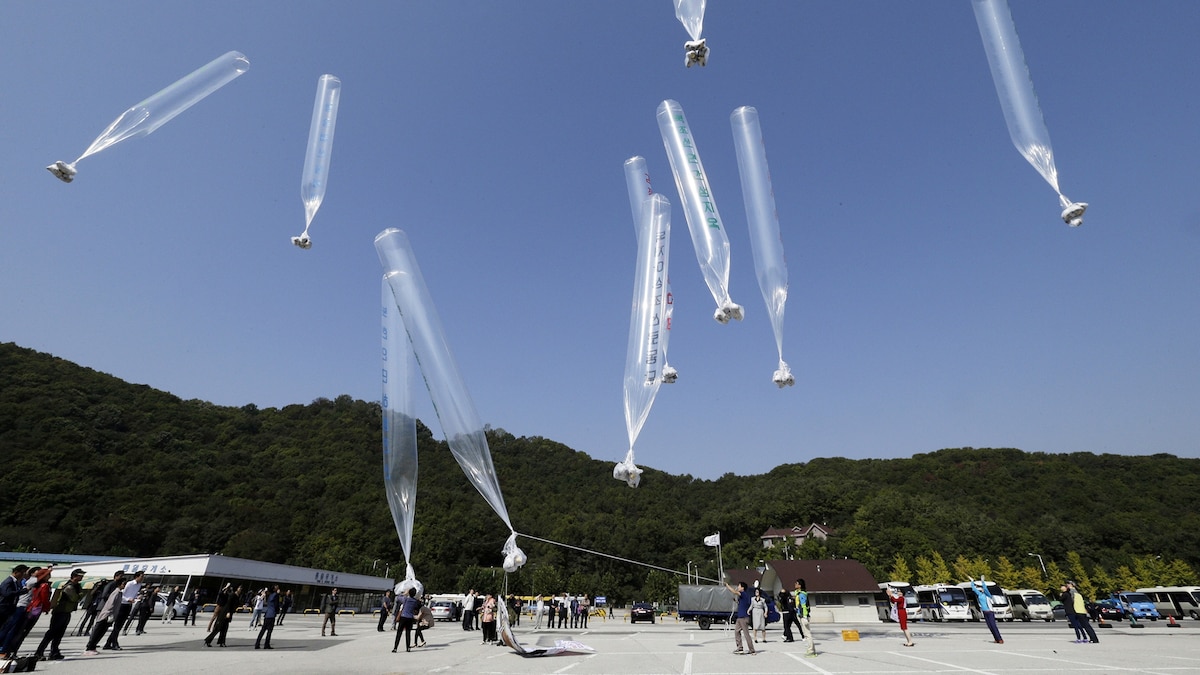“My family is very lucky, very grateful to be free,” said Park, 28, who grew up in North Korea listening to Western radio broadcasts muffled under a blanket in his bed, a thought crime punishable by prison. “We’re not just living life for ourselves now, but for the people back in North Korea.”
Energetic and wiry, Park recounted in confidence his perilous escape from North Korea with four relatives more than a decade ago. Now a youth organizer for an Evangelical church outside of Seoul, he explained how fellow Christians in North Korea risked execution for practicing their faith under the cultlike rule of supreme leader Kim Jong Un. He also bemoaned the sinister reach of North Korea’s intelligence agencies, which had poisoned the dictator’s own brother in exile in Malaysia. Arriving as a teenager in go-go South Korea from repressive North Korea, Park recalled, had felt like being a person from the 1970s transported to modern-day New York.
“North Koreans find it very hard here,” sighed Kim Seung-Chul, reflecting on the balloonists’ experience. “Some [South Koreans] see North Koreans as less intelligent, primitive.” An older-generation defector, Kim arrived in South Korea in 1993 after walking away from a work camp in Siberia. He now operates a pro-democracy radio station in Seoul. Even after three decades in the country, Kim noted dryly, he sometimes feels like an outsider. His South Korean wife has been reproached by her friends: Why are you still living with the North Korean?

The guerilla balloonists work under the night sky to evade South Korean police who issue hefty fines. “I’ve been fined before, but I don’t care,” Park said. “People in the North don’t even know what human rights are. Our balloons help wake them up.”
Though sailing private balloons into the North was criminalized in 2020, the prohibition was struck down by South Korea’s Constitutional Court two years ago on free speech grounds. Still, the night launches remain a fraught calling. Seoul doesn’t appreciate the diplomatic aggravation. The police issue hefty safety fines. Lee Min-Bok, a craggy defector in his sixties, had his balloon truck torched. “Could be a North Korean spy,” said Lee, a former agricultural engineer in the North. “Or a pro-North Korean citizen here.” He added, “There are people who disapprove.” He means Communist sympathizers.
Lee launches his airships at night from a remote valley near the DMZ. He packs the balloons with thousands of pages of photocopied essays on free will, and, less frequently, with aspirin, thumb drives loaded with nature documentaries, women’s nylons—anything scarce in the threadbare North. He lives in a rusting shipping container at the site. His South Korean wife and son deserted him for California. Desperate to connect with someone on the other side of the fortified border, he takes the risk of including his real name and phone number on his political leaflets. After years of balloon releases, he admitted wearily, nobody has called.
